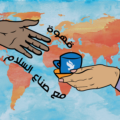
Workshop
Peace, the Pope and an appeal to start the new year

On 1st January every year, the Catholic Church celebrates World Day of Peace. It was established by Pope Paul VI on 8th December 1967, with the hope that “Peace with its just and beneficent equilibrium may dominate the development of events to come”.
It was, even then, an invitation that went beyond the confines of the Catholic world, as well as an extreme call for truce and dialogue in the face of the Vietnam war escalation. As Paul VI wrote: “It would hope to have the adherence of all the true friends of peace, as if it were their own initiative, to be expressed in a free manner, congenial to the particular character of those who are aware of how beautiful and how important is the harmony of all voices in the world for the exaltation of this primary good, which is peace, in the varied concert of modern humanity”.
Dialogue between generations, education and work: tools for building lasting peace
This year, in his message for the 55th World Day of Peace, Pope Francis proposes three paths for building an inclusive and firmly-rooted peace: dialogue between generations, education and work. He writes:
“First, dialogue between generations as the basis for the realization of shared projects. Second, education as a factor of freedom, responsibility and development. Finally, labour as a means for the full realization of human dignity. These are three indispensable elements for “making possible the creation of a social covenant”, without which every project of peace turns out to be insubstantial”.
A theme that, once again, pervades his discourse is the “culture of care”. It is a culture that helps overcome social divisions and the inaction of institutions, and can become “a common language working to break down barriers and build bridges”. Hence his invitation to form a global compact on education “that can promote education in integral ecology, according to a cultural model of peace, development and sustainability centred on fraternity and the covenant between human beings and the environment”. Then, in order for the path of peace to become a concrete part of the lives of many men and women, Pope Francis emphasises the irreplaceable role of human labour, which is “a necessity, part of the meaning of life on this earth, a path to growth, human development and personal fulfilment”.
“It is more urgent than ever to promote, throughout our world, decent and dignified working conditions, oriented to the common good and to the safeguarding of creation. The freedom of entrepreneurial initiatives – he continues – needs to be ensured and supported, at the same time, efforts must be made to encourage a renewed sense of social responsibility, so that profit will not be the sole guiding criterion”.
A global peace dividend
With these premises, we want to put forward and relaunch an initiative signed and promoted by fifty Nobel laureates in December 2021, addressed to the governments of the world.
The proposal, based on rational calculation criteria, is to reduce military spending by 2% in all countries. One trillion dollars would thus be saved over 5 years, half of which could be used to fight global emergencies: pandemics, global warming, extreme poverty. The other half would remain available for individual governments to spend on more peaceful applications. Like combating emergencies at home: poverty, social inequalities (housing, education, work, healthcare), environmental and resource exploitation. The appeal is called ‘A global dividend for peace’. As we write this article, the petition has only reached 43,555 signatures…
The appeal
World military spending has doubled since 2000. It is approaching 2 trillion US dollars per year, and is increasing in all regions of the world (*).
Individual governments are under pressure to increase military spending because others do so. The feedback mechanism sustains a spiralling arms race – a colossal waste of resources that could be used far more wisely. Past arms races have often had the same outcome: deadly and destructive conflicts.
We have a simple proposal for humankind: the governments of all UN member-states should negotiate a joint reduction of their military expenditure by 2% every year for five years. The rationale for the proposal is simple:
Adversary nations reduce military spending, so the security of each country is increased, while deterrence and balance are preserved.
The agreement contributes to reducing animosity, thereby decreasing the risk of war.
Vast resources – a ‘peace dividend’ of as much as 1 trillion USD by 2030 – are made available.
We propose that half of the resources freed up by this agreement are allocated to a global fund, under UN supervision, to address humanity’s grave common problems: pandemics, climate change, and extreme poverty.
The other half remains at the disposal of individual governments. All countries will therefore have significant new resources. Some of these can be used to redirect the strong research capacities of military industries towards urgently needed peaceful applications.
History shows that agreements to limit the proliferation of weapons are achievable: thanks to the SALT and START treaties, the United States and the Soviet Union have reduced their nuclear arsenals by 90% since the nineteen eighties. Such negotiations can succeed because they are rational: each actor benefits from its adversaries’ armaments reduction, and so does humanity as a whole.
Humankind faces risks that can only be averted through cooperation.
Let us cooperate, instead of fighting among ourselves.
(*) Stockholm International Peace Research Institute
SIGN THE APPEAL
Perhaps, building peace also means taking care of the people and the Planet by signing this short appeal.
HAPPY NEW YEAR 2022 TO ALL!






